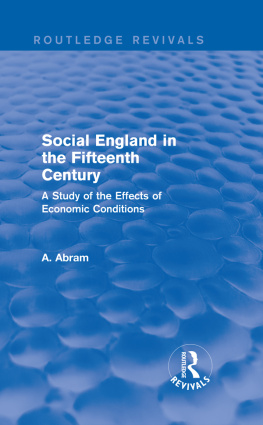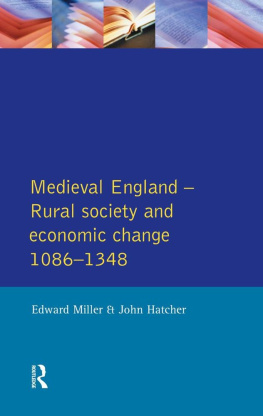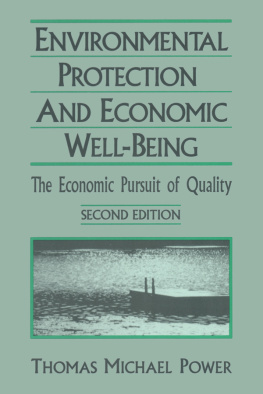Routledge Revivals
Social England in the Fifteenth Century
Annie Abram was born in London in 1869 and died in Sussex in 1930. She contributed significantly to the twentieth-century historiography of late medieval England, researching the social, cultural and religious mores of the English laity and clergy. First published in 1909, this title explores the impact of economic changes on society during the fifteenth century. This was a period of important developments both socially and economically, which witnessed the rise of the middle class through industrialisation, agrarian change, and the growing economic and commercial character of towns. The chapters discuss these areas, as well as the industrial position of women and children, the economic position of the Church and the development of a national character. This is a fascinating classic work, which will be of great value to students researching the socio-economic history of late medieval England.
Social England in the Fifteenth Century
A Study of the Effects of Economic Conditions
A. Abram
First published in 1909
by George Routledge and Sons, Limited
This edition first published in 2013 by Routledge
2 Park Square, Milton Park, Abingdon, Oxon, OX14 4RN
Simultaneously published in the USA and Canada
by Routledge
711 Third Avenue, New York, NY 10017
Routledge is an imprint of the Taylor & Francis Group, an informa business
1909 A. Abram
All rights reserved. No part of this book may be reprinted or reproduced or utilised in any form or by any electronic, mechanical, or other means, now known or hereafter invented, including photocopying and recording, or in any information storage or retrieval system, without permission in writing from the publishers.
Publishers Note
The publisher has gone to great lengths to ensure the quality of this reprint but points out that some imperfections in the original copies may be apparent.
Disclaimer
The publisher has made every effort to trace copyright holders and welcomes correspondence from those they have been unable to contact.
A Library of Congress record exists under LC control number: 10008277
ISBN 13: 978-0-415-71882-0 (hbk)
ISBN 13: 978-1-315-86780-9 (ebk)
THE RESEARCH LIBRARY
SOCIAL ENGLAND
IN THE
FIFTEENTH CENTURY
A STUDY OF THE EFFECTS OF ECONOMIC CONDITIONS
Thesis approved for the Degree of Doctor of Science (Economics) in the University of London
BY
A. ABRAM
B.A. CAMBRIDGE HIST. TRIPOS
LONDON
GEORGE ROUTLEDGE AND SONS, LIMITED
NEW YORK: E. P. DUTTON & Co.
1909
Preface
IN the following pages I have endeavoured to show the effects of the development of Industry and Commerce upon Social Life in England in the fifteenth century. So great an interest is now felt in Social questions, that there is no need to justify my choice of a subject. The fifteenth century is a particularly attractive period, not only because it witnessed very important Economic changes in this country, but also because it formed a prelude to the Age of the Renaissance and the Reformation.
I desire to express my thanks to Mr. Hubert Hall, of the Public Record Office, for much help given to me in the course of my work. I am especially indebted to him for advice as to the use of original sources; at his suggestion, I examined the Early Chancery Proceedings and found them full of information of all kinds. I have by no means exhausted them, and I hope they may be of use to other students of Social and Economic History.
I also wish to thank the London County Council for very kindly giving me copies of some of the entries in the Court Rolls of Tooting Bec Manor.
Miss E. M. Delf has made some valuable criticisms upon my work, and Miss E. Earle has read my proofs; to both of them I owe many thanks.
A. ABRAM.
THE fifteenth century was not marked by an epoch-making catastrophe, like the one which preceded it, or glorified by an outburst of literary activity, like that which followed; but it was none the less a most critical period in the history of the nation. Momentous events took place in the spheres of industry and commerce, which shaped its destiny in future days. England had hitherto depended largely upon her neighbours in these matters, but at this time she began to be conscious of her own powers, and entered upon the career, which she has never since quitted. Industrial development caused great changes in social life; it introduced new ideas, trained new faculties, and brought into prominence men who had been of little account in the past, and thereby it overthrew old modes of thought and old institutions. A century is, however, an arbitrary division of time, and the origin of some of the changes which swept over England in the fifteenth century may be found in the fourteenth. Other changes were not fully accomplished until long after the fifteenth century had reached its close, and they, in their turn, exercised a great influence upon conditions of life in the sixteenth century.
Economic environment is only one of the many forces which mould social life; religion, political institutions, and war are factors which must be taken into account, and they might have lessened the effects of the economic changes had not circumstances diminished their own strength. Religion was discredited by quarrels in the Church, and respect for the priesthood was decreased by its worldliness. Political institutions, however admirable, are of little practical use, unless they are well administered, but during the greater part of the century the Government was weak and inefficient. The authority of the Crown was lessened by a defective title and by wars of succession, and the nobles, who should have been its chief support, were absorbed in their private affairs, and cared little for the public good. War, it must be admitted, affected the characters of those engaged in it, and the deterioration of the baronage may be partially attributed to the demoralizing influence of the French War. But after the death of the Duke of Bedford the French War languished, the people took little part in it, and they had even less share in the Wars of the Roses. Moreover, in so far as war reduced the numbers and lowered the prestige of the nobles, it acted in conjunction with Economic forces, which deprived them of superiority by raising other classes to their level.
Thus economic forces were not only able to hold their own, but also materially to affect the development of other tendencies; and so religion and politics were tinged by a commercial spirit, and commercial intercourse formed the subject 9f much diplomacy. Consequently England made great strides as an industrial country; but her devotion to trade prevented her from paying much attention to other affairs, and she was hardly aware of the great awakening of thought which was going on in the South of Europe. A comparison of the progress of this country with that of other nations would be an interesting study, and though space does not permit it here, perhaps this slight attempt to describe life in England may furnish some data for this purpose. From several points of view, therefore, the Economic History of the fifteenth century has a special value for ourselves, for our own age must inevitably witness a like process of transitionnew ideas are constantly presented to us, and new interests are beginning to demand our attention. Possibly, then, we can gain from the past some wisdom to guide our future policy.







